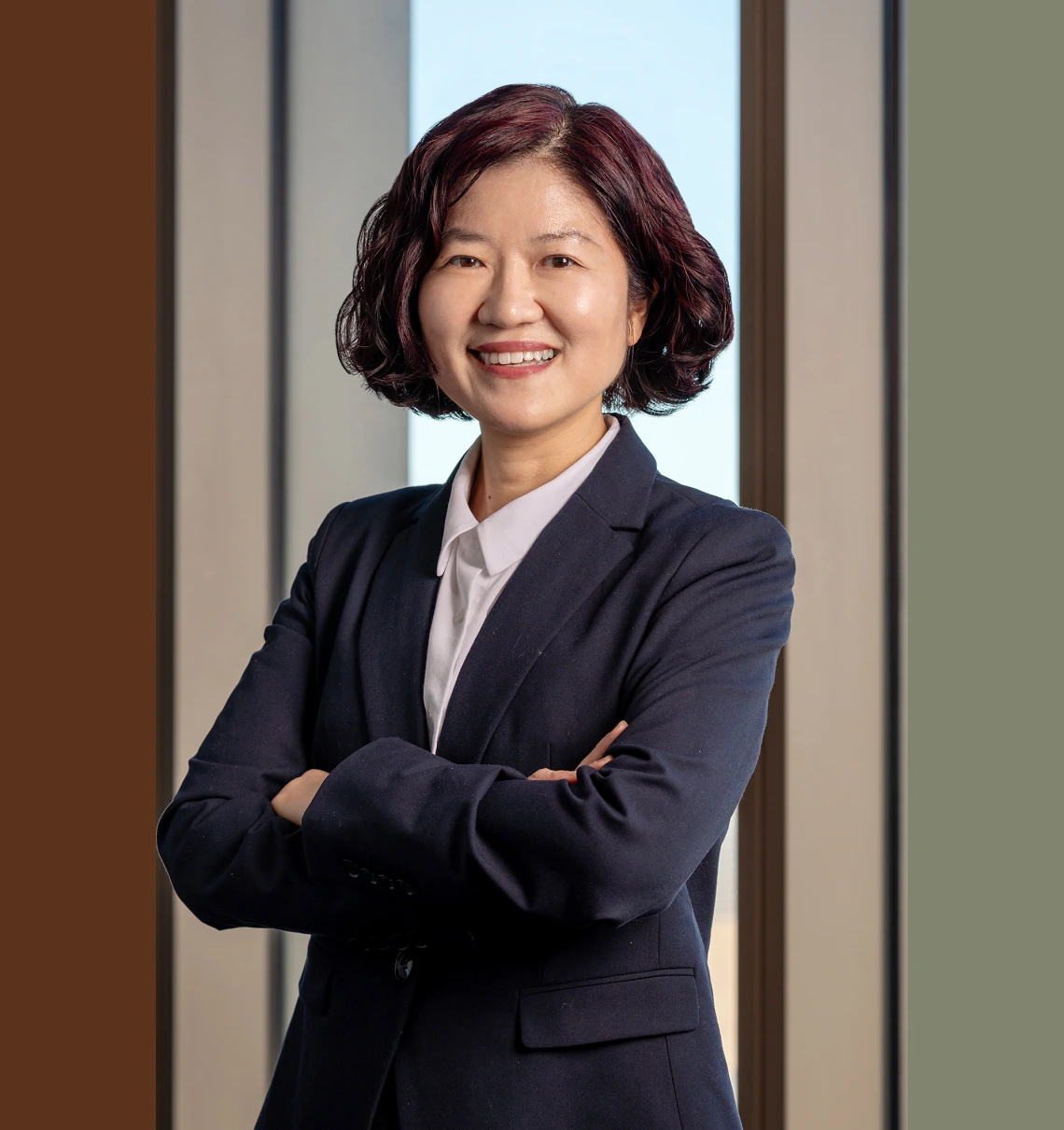Uniting for Impact: College of Nursing’s collaborations advance university dementia research

The College of Nursing is making significant progress in advancing dementia research and care through collaborative, interdisciplinary partnerships. Central to these efforts is Juyoung Park, PhD, FGSA, a nursing professor and associate director of the college’s Brain Digital Technology Laboratory.
As a nationally recognized gerontological researcher and expert in chronic pain and aging-related disparities, Park is currently contributing her expertise as a co-investigator on two innovative research projects spanning multiple colleges at the University of Arizona. These collaborative efforts reflect the college’s commitment to improving healthcare outcomes for vulnerable populations with dementia.
In the first project, Park is partnering with Lifeng Lin, PhD, from the Zuckerman College of Public Health on a newly awarded grant from the National Institute on Aging (NIA). The study, titled “Innovative Data Integration Models for Handling Evidence Inconsistency in Alzheimer’s Disease and Related Dementias (AD/ADRD) Research,” aims to tackle a significant challenge in dementia science: the inconsistency of data across studies, which complicates treatment comparisons.
Together, Park and Lin are developing new Bayesian network meta-analysis models and open-source software to help researchers combine and interpret disparate data sets more accurately. For example, one study may predominantly include older women, while another may consist mainly of younger men. Such differences can lead to inconsistent results when researchers attempt to compare treatments across studies, making it difficult to draw clear conclusions about the effectiveness of various interventions. To address this issue, the research team plans to create innovative statistical models and open-source software that will enable researchers to combine and interpret data more effectively. This tool will help apply these new methods in systematic reviews, which can be utilized not only in AD/ADRD research but also in other areas of health research.
Park’s role is to ensure that the models remain clinically relevant and accurately reflect the real-world diversity found in patient populations, including age, sex, race/ethnicity, and various care delivery models. She also contributes to dataset selection, interpretation of findings, and the dissemination of the software for widespread clinical use. Park states, “We aim to translate findings into practical tools that advance evidence-based dementia research.”
In a second collaborative project funded by the Arizona Biomedical Research Commission (ABRC), Park is joining forces with Ilknur Telkes, PhD, from the College of Medicine to address a critical yet often overlooked issue in dementia care: pain assessment.
Entitled “Developing a Multimodal Approach to Objectively Assess Chronic Pain in Older Adults with Alzheimer’s,” this project leverages artificial intelligence (AI), including machine learning (ML), to analyze multimodal biosensing data and identify pain in individuals who may struggle to communicate it. The team is utilizing advanced tools, including EEG, fNIRS, eye tracking, and wearable sensors, to develop ML models that can detect pain signatures in real-time.
Park leads the clinical aspects of this study, which include conducting cognitive assessments, managing participant recruitment, and ensuring that the research tools apply to real-world Alzheimer’s disease and related dementia (ADRD) care settings. Her extensive experience in nonpharmacological interventions, paired with her understanding of aging-related health disparities, provides crucial context for a project that could transform pain diagnosis and management for Alzheimer’s patients.
“Accurate pain detection is a critical yet often overlooked need in the AD/ADRD population,” said Park. “We aim to develop objective and multimodal pain assessment tools that will enhance the quality of life for these vulnerable individuals and their caregivers.”
Also collaborating on this study is Brian Ahn, PhD, Dean of the College of Nursing, who will lend his engineering expertise to the implementation of data collection methods for both neuroimaging and clinical pain data. Ahn will provide scientific guidance and feedback on participant recruitment, screening, enrollment processes, and will assist in reviewing and interpreting data as well as in writing progress reports, planning research strategies, and preparing manuscripts.
“Collaboration across colleges is at the heart of our mission to drive innovation in health care,” said Ahn. “By working together with experts in public health, medicine, and engineering, we’re able to tackle complex challenges like dementia care from multiple angles. Dr. Park exemplifies this spirit of interdisciplinary teamwork, and her clinical insight and research expertise are vital to the success of these collaborative efforts.”
Park’s dual involvement in these two impactful projects exemplifies the College of Nursing’s commitment to interdisciplinary research and innovation. Whether she is advancing statistical modeling with public health experts or creating AI-driven clinical tools with colleagues in medicine and engineering, Park represents how the College of Nursing collaborates to tackle some of the most complex challenges in geriatric health.

